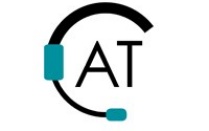Concept testing
Competency Group: Business
Type: Process
Description: Concept testing is an endeavor used in identifying early on potentially successful products. It focuses on taking into account people’s reaction to a basic idea of the product, helping in making decisions such as pass/fail or go/no go. Concept testing is taken place before a product is marketed. Hence, while promising a high probability of consumer acceptance, the attempt minimizes the research and development costs as well as the marketing costs. Concept testing addresses several purposes. It helps finalize the optimum market that the product should be introduced in. While selecting among alternative concepts, it confirms that the selected concept is most favorable. Concept testing also lays the foundation upon which benchmarking can be carried out in the future. The effort helps in introducing new ideas into the concept. It forecasts the demand and analyzes whether the product is actually ready to be launched.
Citation for Description: Lucintel. (2011). Concept testing. Retrieved by http://www.lucintel.com/concept_testing.aspx.
Units: Continue/Refine/Stop current new product development cycle
Advantages: "A concept test can provide a variety of benefits: A product reaction study, involving liking and intention to purchase; A tool that can be customized to profile your own product or service idea; Consumers can evaluate and provide feedback early in the development process; A management tool for measuring potential success and refine the concept; A screen for unproductive ideas "
Limitations: Some respondents do not give timely responses or may give fake, socially acceptable answers. Incomplete questionnaires have a negative impact on research.
Target Audience: Top management, Marketing, R&D
Relevant to Universal Design: Yes
Stages and Steps: 2.2, 4.11, 4.13
Purchase Resource: MaCorr Research. (2012). Concept testing market research. Retrieved from http://www.macorr.com/concept-testing.htm.
